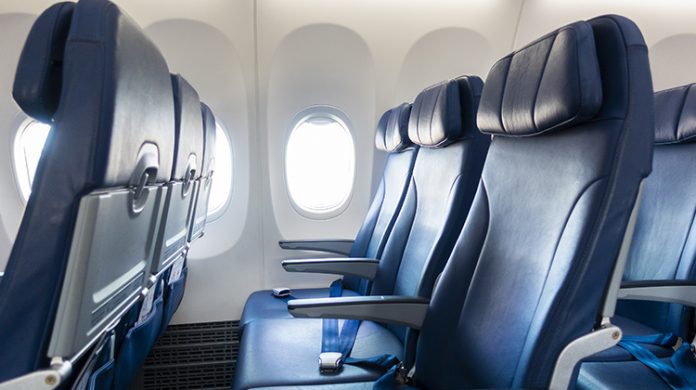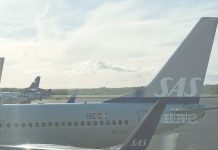The study shows that continued distancing and mask-wearing on planes can help control the spread of COVID
Leaving the middle seat empty on airplanes can significantly reduce the risk of exposure to the virus that causes COVID-19, the Centers for Disease Control found in a new study.
CDC ran a laboratory simulation to see how respiratory particles spread on a plane. Test results showed that when the middle seat is left vacant, the risk of exposure to COVID-19 goes down by 23% to 57%, depending on where people are sitting — on both single-aisle and double-aisle planes.
Using laboratory models, the CDC and Kansas State University mimicked the respiratory spread of COVID-19 with aerosol spray. The tests showed that the exposure risk went down by 23% for a passenger in the same row as an infectious passenger but with an empty seat in between them, and by up to 57% when the middle seat was vacant across three rows of seats with a mix of infectious and healthy passengers.
“When the infectious and other passengers who would have had middle seats were removed, leaving six infectious passengers out of 12 total passengers remaining in the window and aisle seats, a 57% exposure reduction was observed,” the researchers said.
“A case study of COVID-19 transmission on a flight with mandated mask-wearing … suggests that some virus aerosol is emitted from an infectious masked passenger, such
Delta Air Lines is the only major U.S. airline that is still not selling middle seats on flights.
Airline experts said that this CDC report is unlikely to lead to changes from the airline industry, which is trying to rebound from losses over the last year.
“This is a giant bombshell from the CDC,” Henry Harteveldt, an industry analyst and co-founder of Atmosphere Research Group, “I think the airlines are going to look at it and say, ‘That’s nice. We’re not going back to blocking middle seats.’ ”
The CDC has said that fully vaccinated people can travel by air at a low risk of infection, but they recommend avoiding it if possible. The CDC is not encouraging any kind of non-essential domestic travel by those who are not fully vaccinated. They reiterated that stance in the study.
“Current CDC guidelines recommend against travel for persons who have not been vaccinated and require masking for all persons while on aircraft,” they said. “Physical distancing of aircraft passengers, including through policies such as middle seat vacancy, could provide additional reductions in SARS-COV-2 exposure risk.”
























